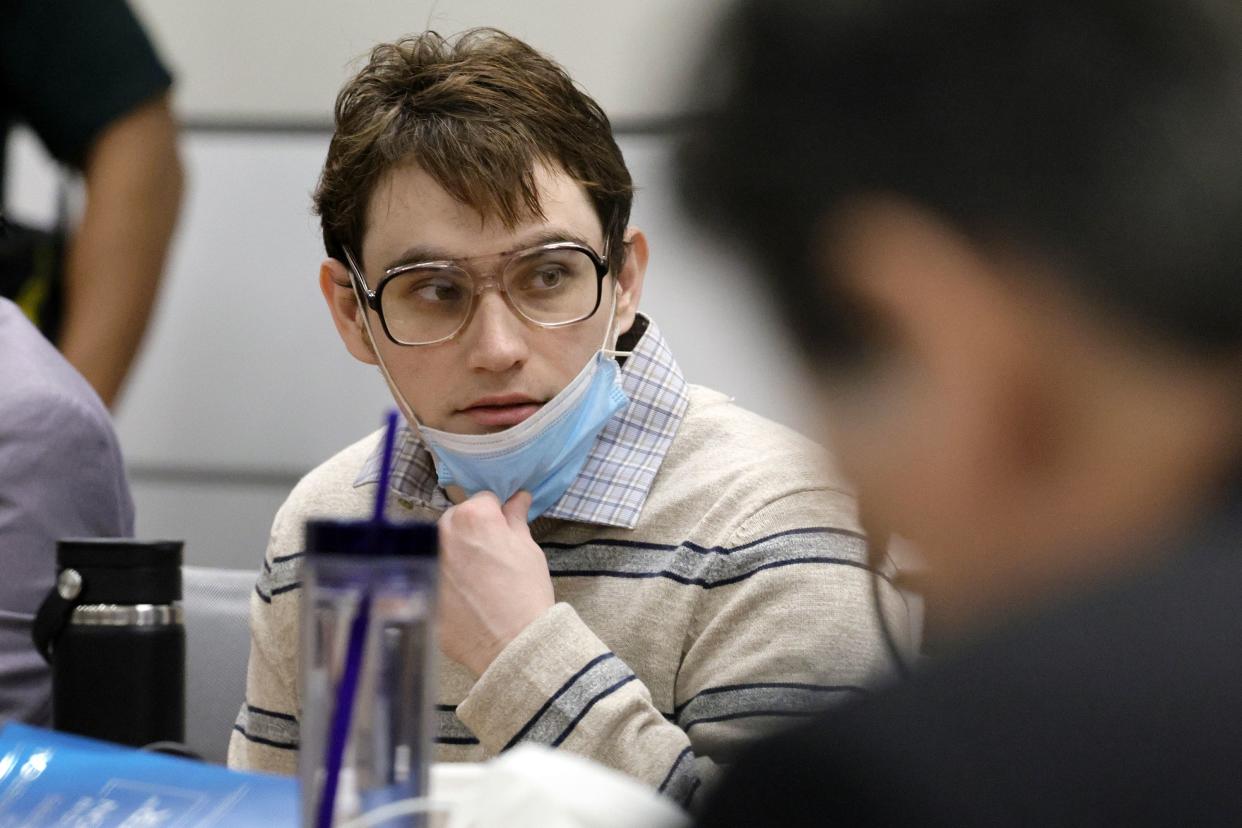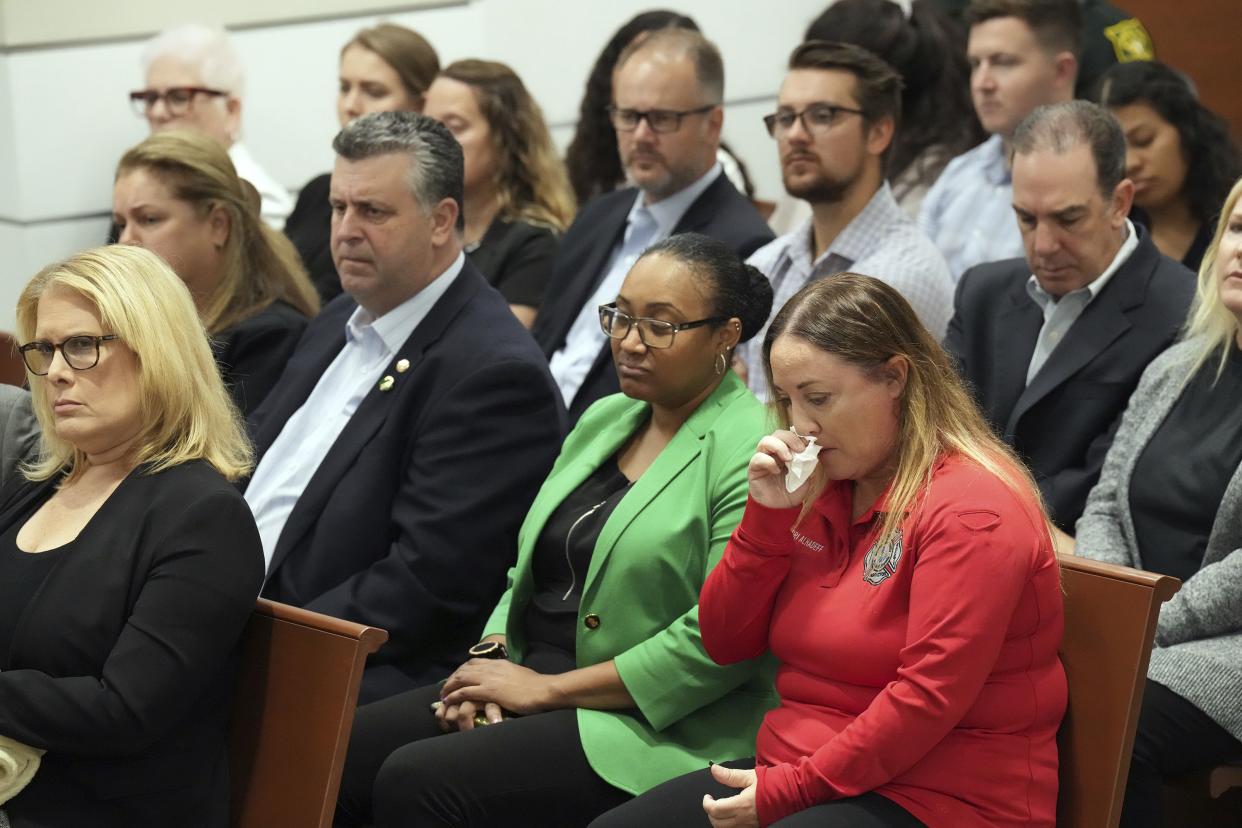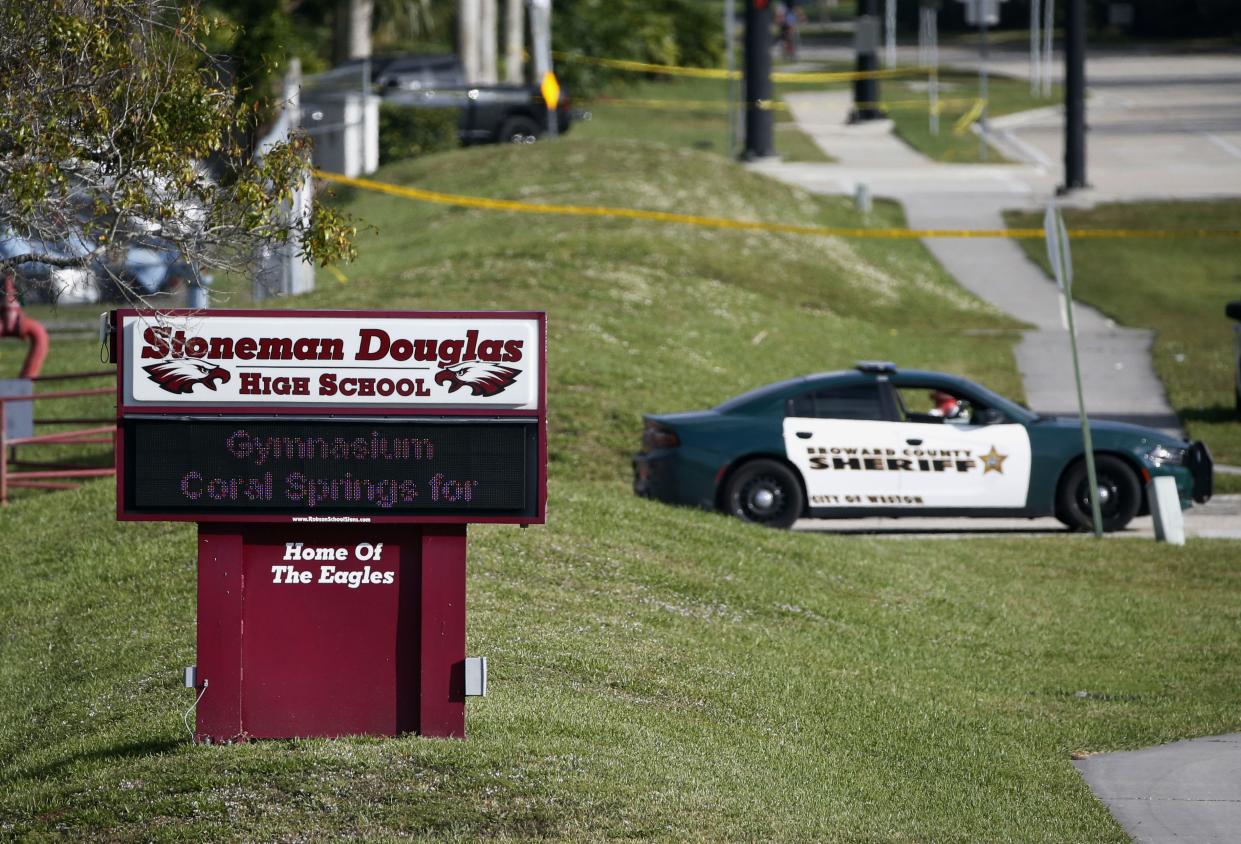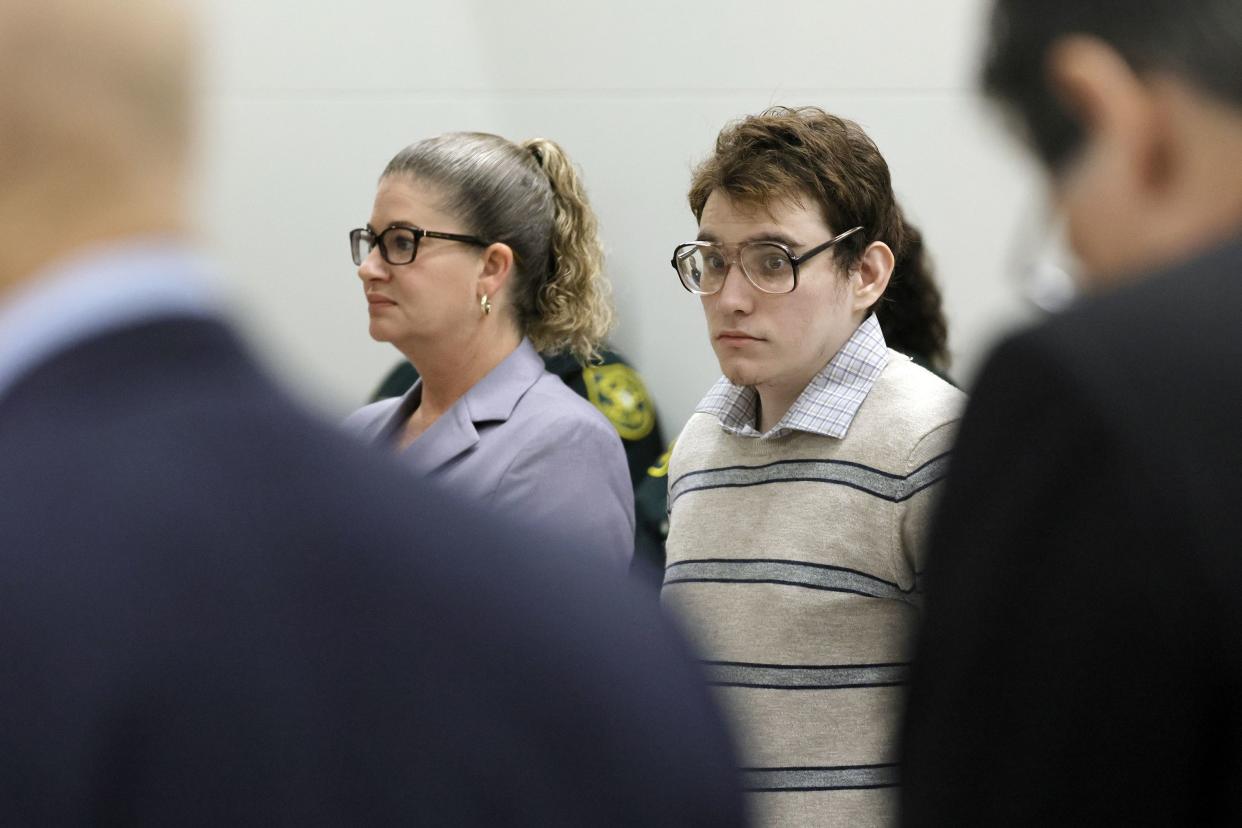Closing arguments completed in sentencing trial of Parkland school shooter Nikolas Cruz
Closing arguments concluded Tuesday in the sentencing trial of Parkland school shooter Nikolas Cruz, who will either be executed or spend the rest of his life behind bars without the possibility of parole.
Prosecutors pushing for the death penalty have spent the monthslong trial outlining how Cruz planned every detail of the massacre at Marjory Stoneman Douglas High School, including the date. Just 19 at the time, Cruz burst into the Parkland school on Feb. 14, 2018, and immediately started “hunting his victims,” lead prosecutor Mike Satz said.
He chose Valentine’s Day, he said, so students at the school would never want to celebrate the holiday again.

Marjory Stoneman Douglas High School shooter Nikolas Cruz sits at the defense table for closing arguments in the penalty phase of Cruz's trial at the Broward County Courthouse in Fort Lauderdale, Fla., on Tuesday, Oct. 11, 2022. (Amy Beth Bennett/)
Cruz’s actions were “tactical and purposeful” as he stalked through the three-story building, Satz said, shooting some victims at “close range” and returning to some wounded victims to “to finish them off.” He was armed at the time with an AR-15-style automatic rifle.
Three school staff members and 14 students were slaughtered in the seven minutes of violence. Satz called the killings “unrelentlessly heinous, atrocious and cruel.”
Cruz’s internet activity — specifically, comments about his desire to carry out a mass shooting as well as searches he made about how to go about it — are also noteworthy, prosecutors argued.
“What one writes, what one says, is a window to someone’s soul,” Satz told the panel of jurors, made up of seven men and five women.

Lori Alhadeff cries as Assistant State Attorney Mike Satz details the killings in his closing arguments in the penalty phase of the trial of Marjory Stoneman Douglas High School shooter Nikolas Cruz at the Broward County Courthouse in Fort Lauderdale, Fla. on Tuesday, Oct. 11, 2022. Alhadeff's daughter, Alyssa, was killed in the 2018 shootings. (Amy Beth Bennett/)
Some of his Google searches included more generic terms, like “murder” or “shooting people.” Others sought specific information about mass shootings and those who carried them out in the past. He also searched for a map of Marjory Stoneman Douglas, where he was once a student.
The trial’s imminent conclusion comes nearly a year after Cruz, now 24, pleaded guilty to 17 counts of murder and 17 counts of attempted murder. Because he has already confessed, jurors have been tasked only with determining whether Cruz will be executed or spend the rest of his life behind bars.
For the death penalty to be imposed, their decision must be unanimous.

Law enforcement officers block off the entrance to Marjory Stoneman Douglas High School in Parkland, Fla., Feb. 15, 2018, the day after a deadly shooting at the school. (Wilfredo Lee/)
Cruz’s defense attorneys, who have been battling to save his life, never attempted to deny the atrocities he committed. Instead, they focused on his birth mother’s heavy drinking during pregnancy. Lead attorney Melisa McNeill said fetal alcohol syndrome could account for his troubling and sometimes violent behavior patterns, which first started to emerge when he was 2 years old.
Cruz was misdiagnosed as a child with attention-deficit/hyperactivity disorder, preventing him from getting the appropriate treatment, McNeill argued.
“There is no time in our lives when we are more vulnerable to the will and the whims of another human being than when we are growing and developing in the wombs of our mothers,” she said. “He was doomed in the womb.”
Satz and his team rejected the notion, instead labeling Cruz a sociopath with symptoms more akin to antisocial personality disorder. They noted seven aggravating factors, including that the killings were especially heinous, atrocious or cruel, as well as cold, calculated and premeditated, which should “outweigh any mitigation about anything about the defendant’s background or character,” Satz said.
Other relevant factors include the fact he knowingly created a great risk of death to many people and that he disrupted a lawful government function, the prosecutor argued.
McNeill, the defense attorney, contended that sentencing Cruz to death would amount to “vengeance” serving no other purpose.

Marjory Stoneman Douglas High School shooter Nikolas Cruz stands as the jurors enter the courtroom for closing arguments in the penalty phase of Cruz's trial at the Broward County Courthouse in Fort Lauderdale, Fla. on Tuesday, Oct. 11, 2022. (Amy Beth Bennett/)
The defense prematurely wrapped their arguments last month, prompting the judge to blast them as unprofessional.
Defense attorneys went on to file a motion to disqualify the judge for her comments, arguing they were indicative of the judge’s bias against Cruz. It was ultimately denied.
With News Wire Services
